Out of Africa (1985)
“I don’t want to live someone else’s idea of how to live; don’t ask me to do that.”
|
Synopsis: |
|
Genres, Themes, Actors, and Directors:
Response to Peary’s Review: Indeed, cinematographer David Watkin’s work here is simply stunning; it’s no wonder that this film “inspired a great increase in tourism in Kenya.” Meanwhile, I agree with Peary that “young girls could find worse role models than Streep’s Karen,” who is “a writer, runs a coffee plantation, is willing to work with her hands, fearlessly rides through hostile territory during a native uprising, lives alone (after she kicks out [Brandauer]), calmly shoots a charging lion: … and is even willing to humble herself by dropping to her knees in public to beg for land for the [local] Kikuyus after she leaves Africa.” However, I do fall into the camp of being troubled by the centering of a white female’s exploits in colonized Africa: As much as Pollack and screenwriter Kurt Luedtke admirably humanize a number of the African individuals in Karen’s life, she’s ultimately the main focus, with Kenya itself primarily exoticized as a beautiful lifestyle alternative for colonizing Europeans. Redford is fine and believable as Streep’s commitment-phobic lover: … but Brandauer (naturally) steals the moments he’s in, playing a surprisingly sympathetic, straight-shooting philanderer who notoriously gave Dinesen syphilis (for which he at least apologizes sincerely). How much one enjoys this film (beyond the visuals) will depend largely on your investment in Dinesen’s memoirs, which I suspect aren’t quite as widely read or discussed these days. Redeeming Qualities and Moments: Must See? (Listed in 1001 Movies You Must See Before You Die) Links: |
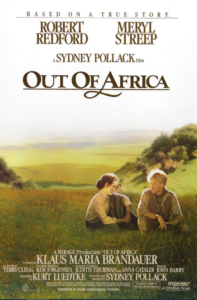
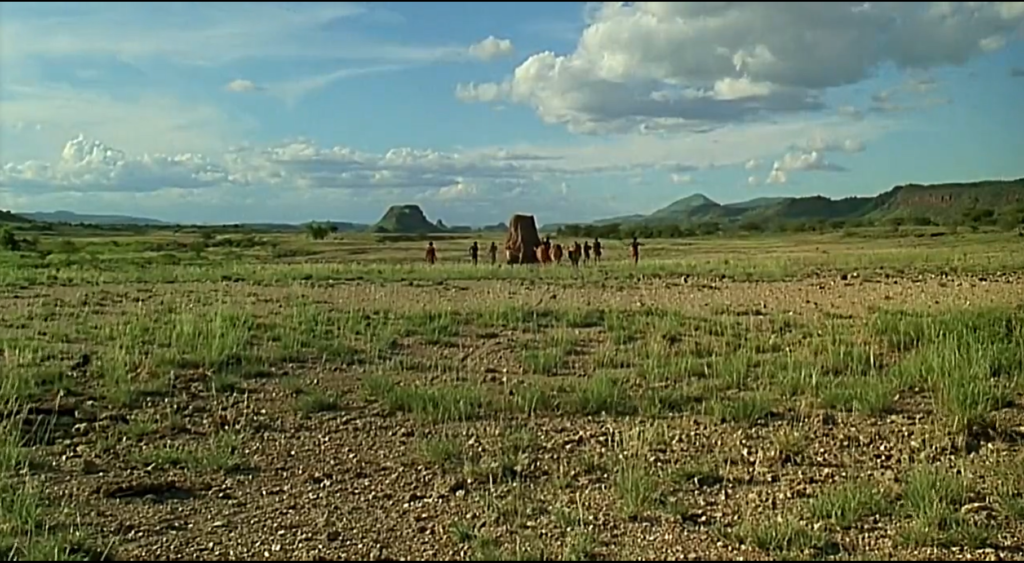
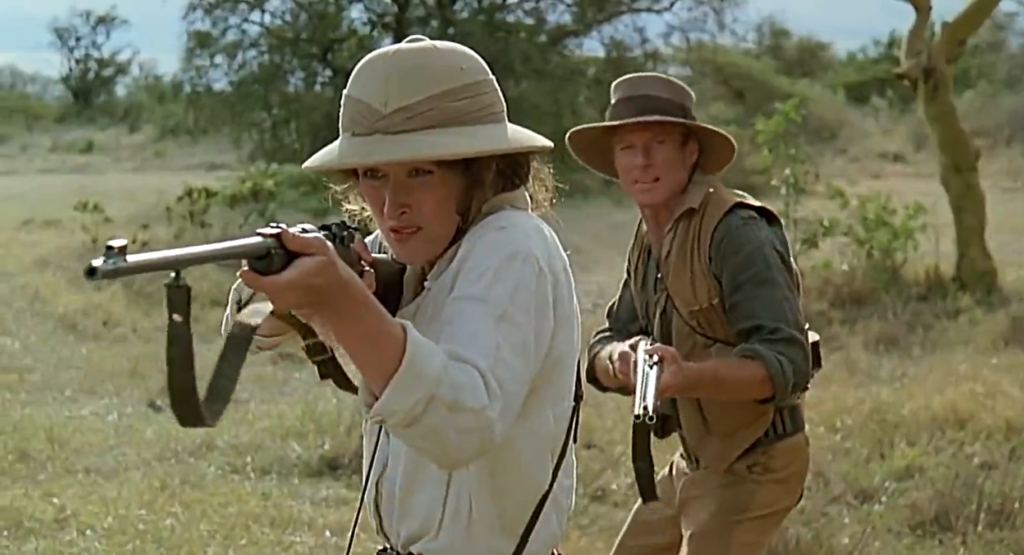
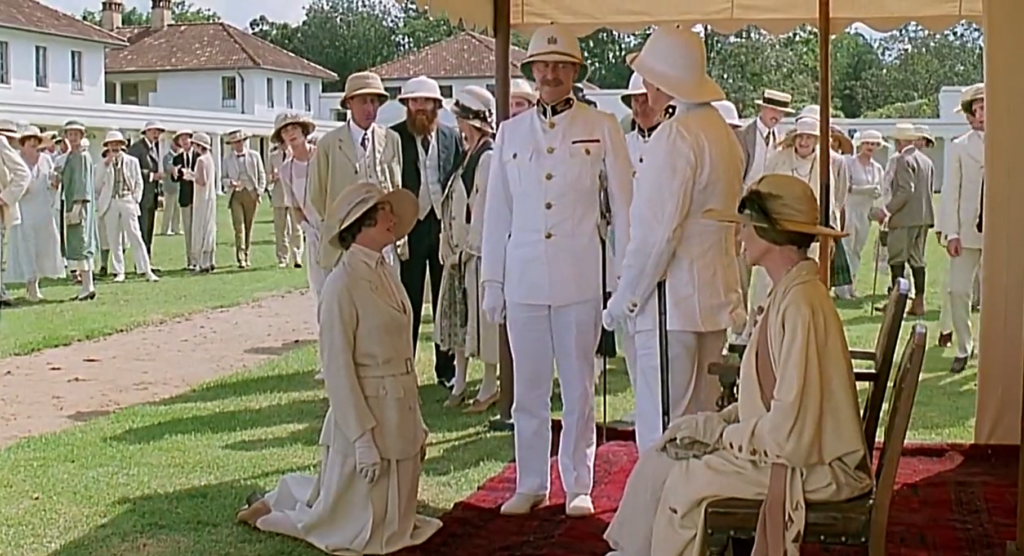
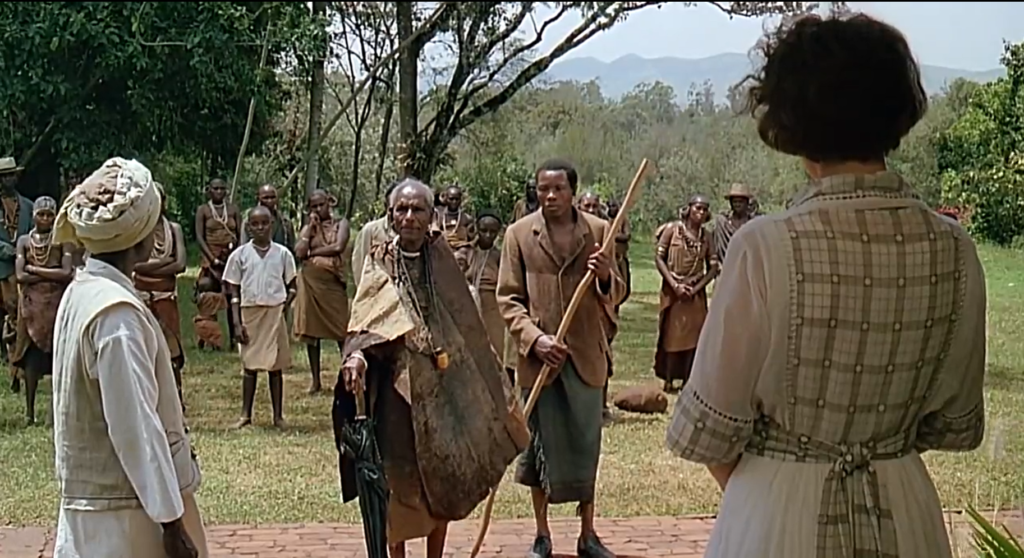
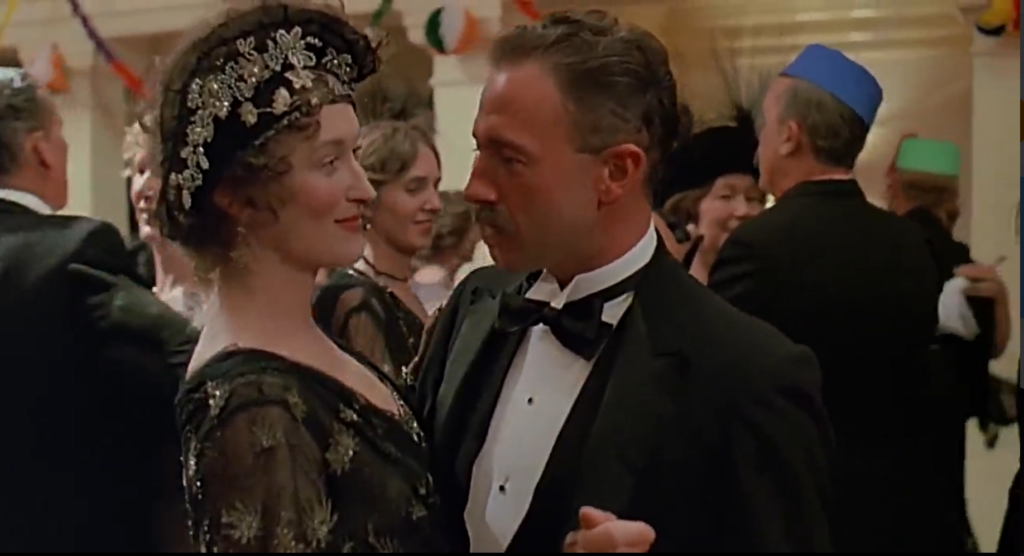
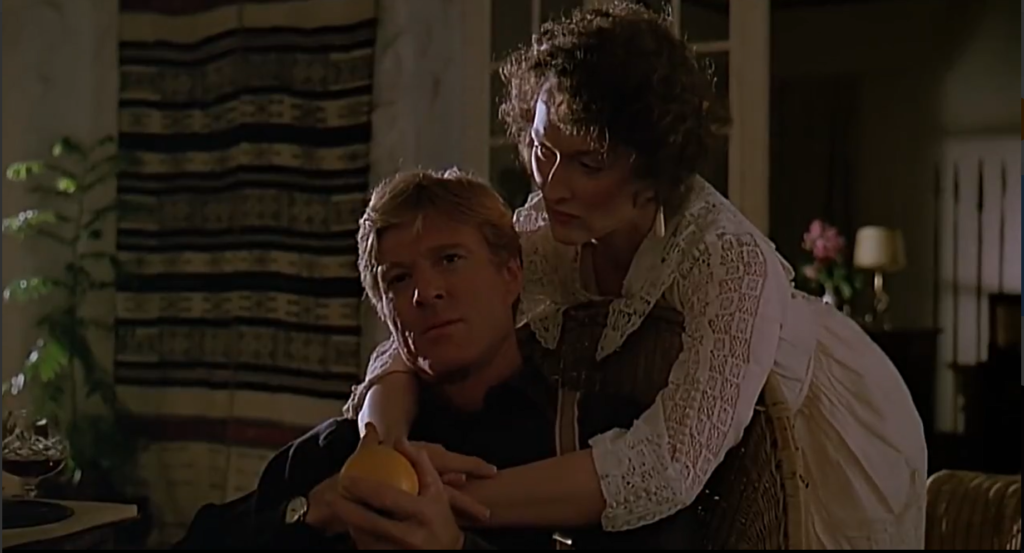
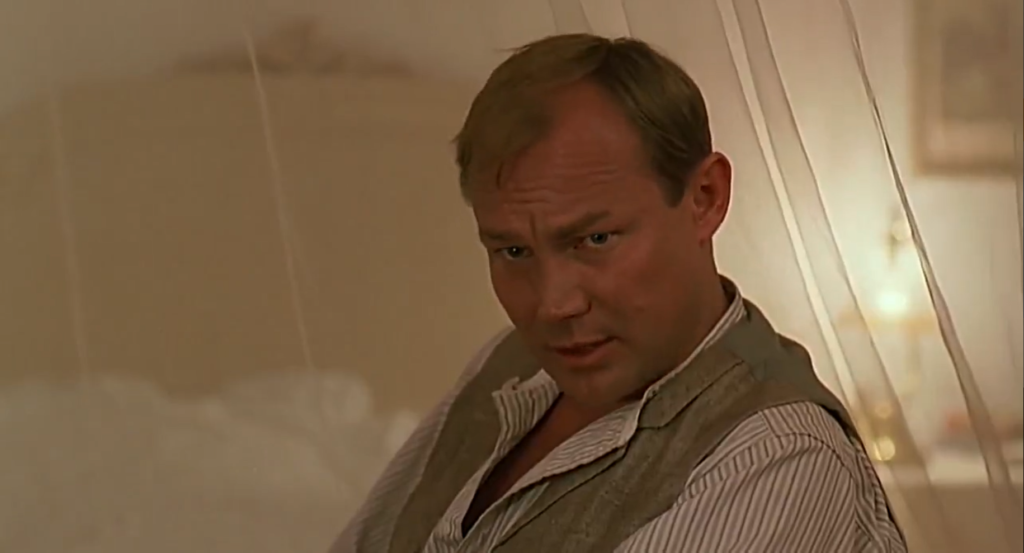
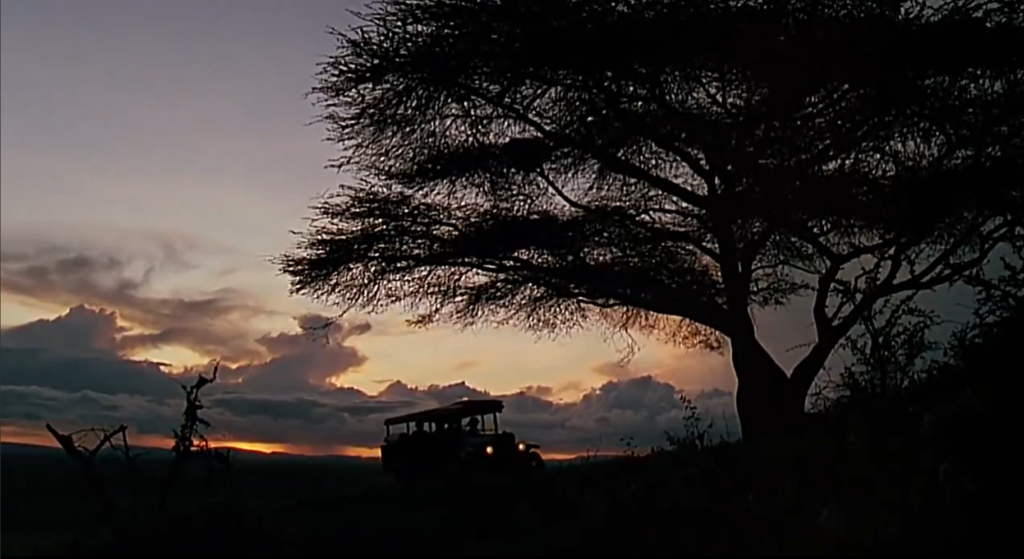
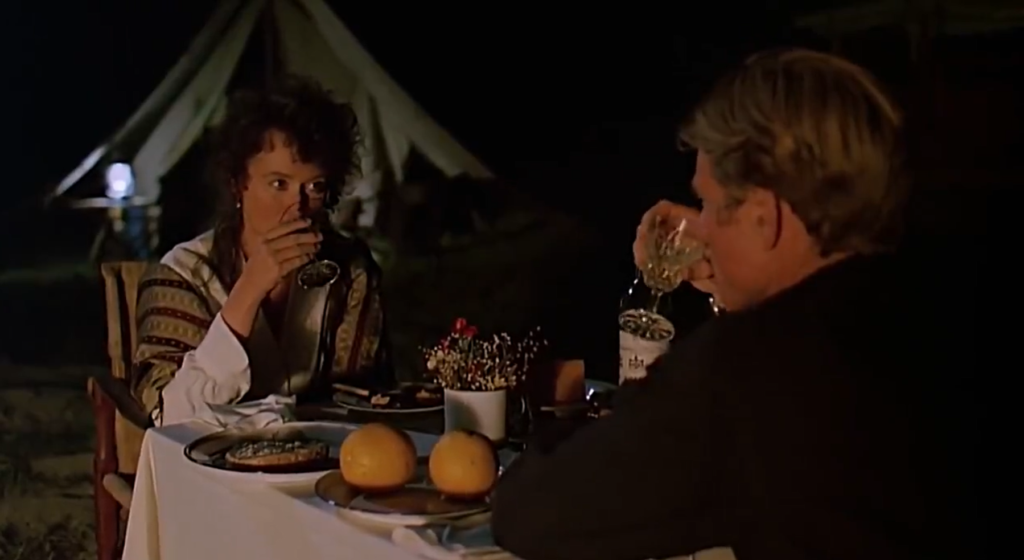

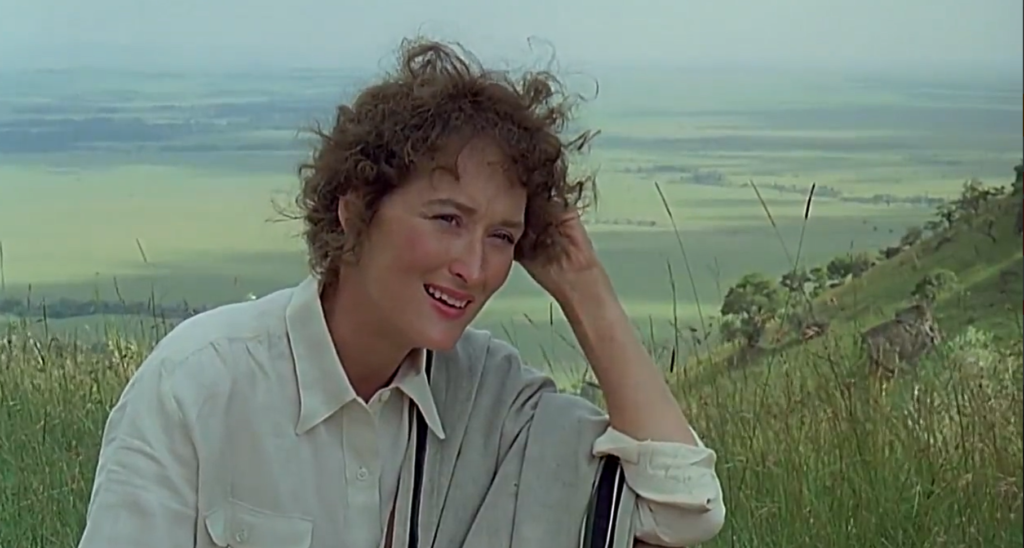
One thought on “Out of Africa (1985)”
Agreed; not must-see. In spite of its popularity when released (earning 227.5 million from a budget of 28 million), I wonder just how popular the film remains. It has always seemed to me (even though I hesitate ever tagging a work as such) a film designed as Oscar-bait.
~ which it proved to be, winning seven statues after 11 nominations. Yet I don’t find it a very inviting film (though that has nothing to do with the film being set in Africa). Pollack’s direction is fine, there’s terrific work by DP Watkin (as noted) and composer John Barry provided a lovely theme.
But I agree that Kenya is “exoticized”. And I find Streep’s portrayal a cold one.